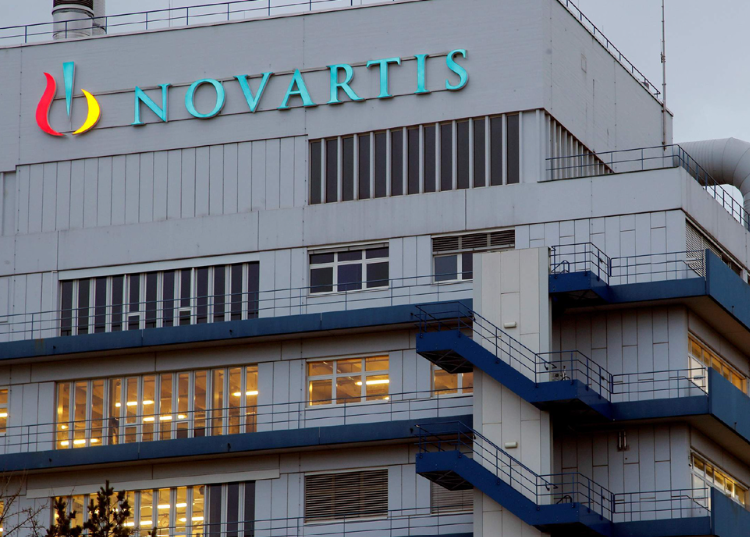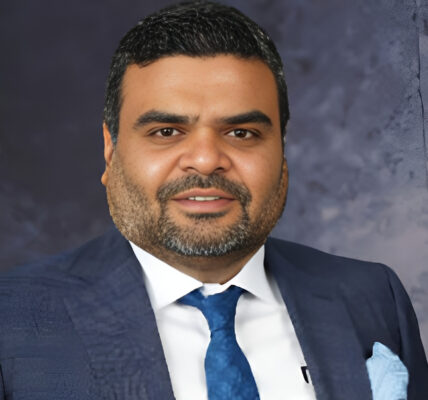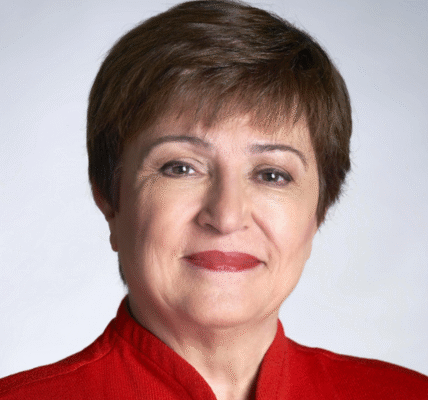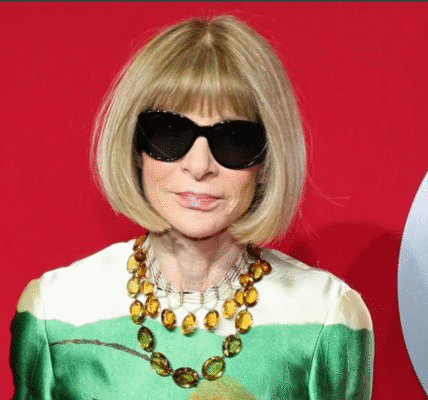Novartis AG: Global Pharmaceutical Leader with a Legacy of Innovation and Controversy

Novartis AG, a Swiss multinational pharmaceutical company based in Basel, is one of the largest in the world, ranking fourth by revenue in 2022. Formed in 1996 from the merger of Ciba-Geigy and Sandoz, it produces well-known drugs like Clozaril, Voltaren, Diovan, Gleevec, and Ritalin. The merger, one of the largest at the time, led to the creation of Novartis, named from the Latin “novae artes” (new skills). Novartis spun off its agrochemical division to form Syngenta in 2000 and is a key member of several global pharmaceutical organizations.
The company faced controversy in the 1990s due to environmental pollution from its Toms River Chemical Plant, linked to increased cancer rates in New Jersey. The plant was shut down in 1996, and cancer rates have since decreased.
Founding and Early History
The company was founded in 1886 as the Chemiefirma Kern und Sandoz by Alfred Kern and Edouard Sandoz. Initially focused on manufacturing dyes, the company expanded into pharmaceuticals in 1895, producing the fever-reducing drug antipyrin and later saccharin, a sugar substitute.
Pharmaceutical Innovations
Sandoz began its pharmaceutical research in 1917 under Arthur Stoll, who isolated ergotamine from ergot in 1918, later marketed as Gynergen to treat migraines. Between the world wars, Sandoz introduced several drugs including Calcium-Sandoz and expanded into chemical production for textiles and agriculture.
LSD and Psychedelic Research
In 1943, Sandoz scientists Arthur Stoll and Albert Hofmann discovered the psychedelic effects of LSD. Sandoz marketed LSD under the name Delysid from 1947 to the mid-1960s for psychiatric use. The drug gained popularity, especially among researchers and the CIA, but was withdrawn from the market in 1965.
Expansion and Acquisitions
Sandoz expanded internationally in 1964, acquiring companies like Delmark, Wasabröd, and Gerber Products Company. It also merged with Wander AG, known for Ovomaltine, in 1967.
Environmental Controversy
In 1986, a fire at a Sandoz plant caused the release of pesticides into the Rhine River, leading to the Sandoz chemical spill, which had significant environmental impacts.
Sandoz’s Evolution
In 1995, Sandoz spun off its specialty chemicals business to form Clariant. Clariant later merged with Hoechst AG’s specialty chemicals division.
Merger and Evolution of Novartis
In 1996, Ciba-Geigy merged with Sandoz to form Novartis, a pharmaceutical giant. Both companies’ pharmaceutical and agrochemical divisions were retained within Novartis, while other segments were spun off, notably Ciba Specialty Chemicals. Sandoz’s construction chemicals business, Master Builders Technologies, was sold to SKW Trostberg, and its North American herbicide unit was acquired by BASF.
Post-Merger Developments
By 1998, Novartis had entered a biotechnology licensing deal with UC Berkeley, sparking concerns over academic integrity due to potential commercialization of genetically modified plants. The agreement concluded in 2003.
In 2000, Novartis and AstraZeneca combined their agrochemical divisions to create Syngenta, a major player in agricultural technology. The company further consolidated its generics business under the Sandoz brand in 2003, streamlining its subsidiaries.
The acquisition of Hexal and Eon Labs in 2005 for $8.29 billion significantly boosted Novartis’s generics unit, Sandoz. The following year, Novartis expanded into vaccines and diagnostics by acquiring Chiron Corporation, while Sandoz introduced the first biosimilar drug in Europe.
In 2007, Novartis sold Gerber Products to Nestlé as part of its focus on healthcare, further distancing itself from legacy Sandoz and Ciba-Geigy businesses.
Expansions and Strategic Acquisitions (2009–2014)
Novartis expanded into China’s vaccine market in 2009 by acquiring Zhejiang Tianyuan Bio-Pharmaceutical. In 2010, the company moved into ophthalmology by acquiring Alcon for $39.3 billion, integrating it as a major business division.
Over the next few years, Novartis continued to make strategic moves, such as acquiring Genoptix (2011) and Fougera Pharmaceuticals (2012). However, the company faced challenges, including patent losses for its hypertension drug Diovan.
In 2014, Novartis acquired GlaxoSmithKline’s cancer drug business for $16 billion while selling its vaccines business to GSK. That same year, it bought a 15% stake in Gamida Cell and made moves to expand its pipeline with cancer drugs.
Recent Growth (2015–2023)
In 2015, Novartis expanded its oncology portfolio by acquiring cancer drug candidates from BioPharma. Over the next several years, Novartis acquired companies like Encore Vision, Advanced Accelerator Applications, and Endocyte Inc., strengthening its position in radiopharmaceuticals, cell therapy, and gene therapy.
By 2019, Novartis spun off Alcon as a standalone entity and formed an AI alliance with Microsoft to streamline drug development. It also expanded its presence in Japan by acquiring Aspen Global’s Japanese business.
The acquisition of The Medicines Company in 2019 brought cholesterol-lowering therapy inclisiran into Novartis’s portfolio. In 2023, the company acquired Chinook Therapeutics and DTx Pharma, boosting its kidney and RNA-based therapies.
Sandoz Spin-Off
In 2022, Novartis announced plans to spin off Sandoz to form Europe’s largest generics company. By October 2023, the spin-off was complete, with Sandoz listed independently on the Swiss Exchange, boasting a market cap of $18–$25 billion.
Research Initiatives at Novartis
Novartis conducts extensive global research operations under the umbrella of the Novartis Institutes for BioMedical Research (NIBR), headquartered in Cambridge, Massachusetts. Within NIBR, two key institutes focus on diseases that predominantly affect developing nations:
- Novartis Institute for Tropical Diseases: Works on combating tuberculosis, dengue, and malaria.
- Novartis Vaccines Institute for Global Health: Focuses on developing vaccines for typhoid fever and shigella infections.
The company also participates in publicly funded research collaborations, such as the InnoMed PredTox project, which centers on non-clinical safety assessments. Additionally, Novartis is involved in joint research projects through the Innovative Medicines Initiative in collaboration with the European Commission.
A notable modern advancement in their clinical research is their partnership with Science 37, aimed at reducing patient burden by enabling telemedicine-based clinical trials. This program plans to conduct ten mobile-based clinical trials over three years, offering virtual visits and reducing the need for patients to physically travel to medical centers.
Product Portfolio Overview
Novartis has a diverse pharmaceutical portfolio that covers a broad range of therapeutic areas. Below is a summary of some of its key products, their indications, and notable sales figures:
- Aclasta/Reclast (zoledronic acid): For treating osteoporosis, with $590M in sales in 2012.
- Diovan (valsartan): A widely prescribed drug for hypertension, which brought in $4.4B in sales during 2012.
- Gleevec/Glivec (imatinib): An oncology drug targeting chronic myelogenous leukemia, generating $4.7B in revenue in 2012.
- Cosentyx (secukinumab): For treating psoriasis.
- Entresto (sacubitril/valsartan): Used in the management of heart failure.
Novartis also has an extensive consumer health division with well-known brands like Excedrin, Theraflu, and Voltaren. However, in 2014, Novartis divested part of its consumer health business into a joint venture with GlaxoSmithKline (GSK), which was later acquired by GSK for $13B in 2018.
Animal Health
Novartis is also a significant player in animal health, offering products for both pets and livestock. Some of their key products include:
- Interceptor: A treatment for worm control in pets.
- Milbemax: A treatment for internal parasites in pets.
- CLiK: Used for controlling blowflies in sheep.
Controversies and Criticism
Gleevec Patent Dispute in India
One of Novartis’ most high-profile legal challenges was its battle over the patent for Gleevec in India. Novartis filed for a patent in 1998 after India joined the World Trade Organization and revised its patent laws. However, the Indian Supreme Court ultimately rejected the patent application in 2013, citing the lack of substantial innovation over the previously known raw form of imatinib, a critical ingredient in Gleevec.
The rejection reignited global debates on balancing innovation, affordability, and access to life-saving medicines. Had Novartis succeeded, it would have had the right to demand royalties from Indian companies producing generic versions of Gleevec. Despite the legal setback, Novartis continues to provide Gleevec to 95% of Indian patients for free, as part of its patient access program.
Legal and Ethical Issues
Over the years, Novartis has faced various legal challenges, including accusations of:
- Sexual discrimination: In 2010, a US jury awarded more than $3M in damages to female employees who accused the company of gender discrimination. Novartis later settled the remaining cases for $152.5M.
- Marketing violations: In 2010, Novartis paid $422.5M to settle claims related to illegal kickbacks and off-label marketing of several drugs, including Trileptal and Diovan.
In 2013, Novartis faced two lawsuits filed by federal prosecutors under the False Claims Act, alleging off-label marketing and kickbacks related to drugs like Myfortic and Starlix.
Japan Valsartan Scandal
In 2013, several clinical trials in Japan, which purported cardiovascular benefits for Diovan (valsartan), were retracted due to manipulated data. A Novartis employee involved in the statistical analysis failed to disclose his ties to the company, resulting in the suspension of Diovan use in some Japanese hospitals. This incident sparked significant media attention and led to public mistrust in the drug’s efficacy.
Commitment to Global Health
Despite these controversies, Novartis remains dedicated to improving access to medications in underserved populations. For instance, the company actively participates in programs aimed at reducing the global burden of infectious diseases and consistently supports efforts to make innovative treatments available to those in need.
Corruption Allegations
In January 2018, Novartis became the subject of investigations by both US and Greek authorities over allegations of bribing Greek public officials between 2006 and 2015. The scheme implicated two former prime ministers, several former health ministers, and high-ranking members of the ruling parties Nea Dimokratia and PASOK, as well as bankers. The general manager of Novartis’ Greek branch was prohibited from leaving the country. The deputy minister referred to the situation as “the biggest scandal since the creation of the Greek state,” noting that it caused a significant rise in annual state expenditure on medicine.
Although many of the implicated ministers have denied the allegations, claiming the case was politically motivated by the Syriza opposition party, the Greek Judicial Council ruled that the scandal was genuine. The case involved not only bribery that led to artificially inflated drug prices but also money laundering, with suspicions that over four billion euros ($4.2 billion) in illegal funds were involved.
In June 2020, Novartis settled with the US Department of Justice (DOJ) and the US Securities and Exchange Commission (SEC), resolving all Foreign Corrupt Practices Act (FCPA) investigations related to the company and its subsidiaries’ historical conduct. Novartis agreed to pay $233.9 million to the DOJ and $112.8 million to the SEC as part of these resolutions.
Michael Cohen
Novartis paid $1.2 million to Essential Consultants, a company owned by Michael Cohen, following the 2017 inauguration of Donald Trump. The payments, made monthly and totaling just under $100,000 each, were intended to help Novartis understand and influence the new administration’s stance on drug pricing and regulation.
In July 2018, a US Senate committee report titled “White House Access for Sale” revealed that the relationship between Novartis and Cohen was more extensive than initially acknowledged. Although Novartis had initially claimed the relationship ended shortly after the $1.2 million contract was signed, it later emerged that then-CEO Joseph Jimenez had communicated with Cohen multiple times during 2017. Their discussions included ideas for lowering drug prices, some of which were reflected in the Trump administration’s drug pricing plan released in early 2018, which ultimately shielded pharmaceutical companies from revenue reductions.
AveXis Data Integrity Scandal
After receiving FDA approval for Zolgensma in May 2019, AveXis, a Novartis subsidiary, voluntarily disclosed to the FDA on June 28 that some data submitted as part of its Biologics License Application (BLA) package was inaccurate. The manipulation involved an in vivo murine potency assay used in the early development of the drug.
Compounding the issue, it was later revealed that AveXis knew about the data manipulation as early as March 14, 2019, nearly two months before Zolgensma was approved. In early August 2019, reports surfaced that a senior manager had sold nearly $1 million worth of stock just before the FDA’s probe became public on August 6 but after the company had informed the FDA of the data issue. As of September 2019, the FDA was still preparing its response to the incident.
Philanthropy: Fight Against Leprosy
Novartis has been committed to eradicating leprosy for decades. Since 2000, the company has provided free multidrug therapy to all countries where the disease is endemic, playing a significant role in the global fight to eliminate leprosy.
Conclusion
Novartis stands as a major player in the global pharmaceutical landscape, known for its innovative therapies and substantial contributions to medical research. The company has made significant strides in addressing critical health issues, including its long-standing commitment to providing free treatments for leprosy and other public health initiatives.
However, its reputation has been marred by multiple controversies, including allegations of corruption, unethical marketing practices, and data integrity issues. These scandals have raised serious questions about the company’s ethical standards and its commitment to transparency.
While Novartis continues to lead in drug development and healthcare solutions, it must address these challenges to restore public trust and uphold its responsibility to patients and society. Ultimately, the balance between innovation and ethical conduct will be crucial for Novartis as it navigates future challenges in the complex healthcare environment.




































